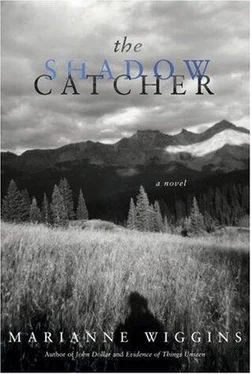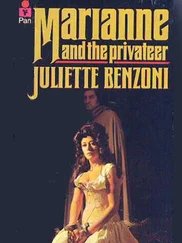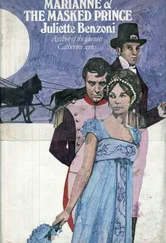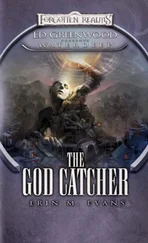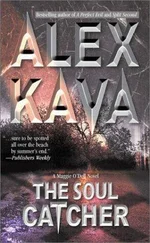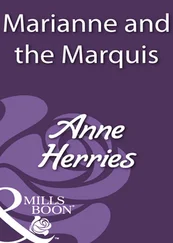Edward , she said aloud, bringing him upright, holding something in his hand. He took one step forward, stopped, then took another as if to bring her into sharper focus. She tried to see his eyes, if he was smiling, but his face was hidden by his hat. How’s the roof? he asked.
“The roof,” she repeated, and he pointed, upward, so she looked up. “Any leaks?” he asked.
Dumbly, she shook her head.
“I’m finding shingles in the yard,” he said and held out a cedar shake to testify. “Big wind last week.”
She nodded, in agreement.
“Day is young,” he said and then he took off at a trot into the woods toward the cliff and the distant sound of water. “Will you not take breakfast with us…Edward?” she called out, just as a lantern light began to shine from the small window in the barn. She went back up the steps with the two pails of water and lit the lantern in the kitchen and, tucking in her hair and pinching both her cheeks in case he should return, set to work, starting a flame beneath the kettle, measuring out the flour, lard and water to make bread and biscuits. By the time the first low rays of sun sliced the air between the trees outside, she had four loaves cooling on the basket trays, the table set and a fresh chicken on the boil for the travelers’ lunch.
“What are you going to do, all by yourself?” Eva asked, appearing crisp, dressed for the journey. “You should change your mind and come with us,” she urged. “There will be bachelors there and you might meet someone.”
“Is that all you want, then, Eva? To meet someone?”
“Don’t you ?”
It was still only seven thirty in the morning when Clara finally waved them off, standing in the yard in the bright sun as the buckboard pulled away, Hercules standing in the back signaling farewell with his arms as if about to fly. And then as soon as they were out of sight the Indians appeared. Like liquid, Clara thought. The way her father had once showed her about aquatint, the way it spreads into the paper — the way a liquid, once it’s spilled, flows into an empty space. That’s the way they seemed to move — Edward, too, she realized — waiting for their moment and then taking shape before one’s eyes, as if from the air, like shadows. They waited while she went inside to get her charcoal and a piece of paper, as was her custom, but when she handed them the sheet of paper there was nothing drawn on it. They looked at her, their eyes like wax. She made a gesture to communicate nothing , crossing her arms in front of her then spreading them wide open while shaking her head — and still they looked at her, their blank expressions impossible to interpret. “Nothing, understand?” she said aloud. “Everyone has gone away. No meat, no fish this week.” I may as well be talking to two fence posts, she thought — their faces registered neither comprehension nor emotion nor intelligence and she was reminded yet again of the Indians she and Hercules had seen on the train platform in Dakota Territory, those Indians whose faces gave no hint of inner life, of hope or of humanity. Those Indians had seemed to her not to care whether they sold their wares or not, but these two, Mopoc and Modoc, showed up every week like clockwork willing, if not eager, to barter services for money. She thought, too, of the children selling heated stones for pennies on the railroad, remembered the feeling she had had when she’d thought how close she and Hercules had come to being reduced to that condition, to that state of near penury, one step away from outright begging. She could give these two a dime to make them go away but she remembered the chafe of charity, the rash it left on one’s own dignity, the irritation on the back of one’s own neck as one bowed her head in gratitude. These Indians wanted work . They wanted work for the same reason that she did and to send them away with charity’s coin in their hand or, worse, empty-handed, would be to rupture the chain of responsibility. She didn’t like these Indians but she had entered into a tacit contract with them and if she were the first to break with that understanding then who knew what they might do or what might happen next, so, while they watched her without moving, she drew a picture on the piece of paper. If they were going to hunt for her today, then she wanted them to bring back something big. She drew a buffalo.
It was perhaps an act of mockery she realized, too late — there was no reason that these two Pacific Northwest tribesmen would have ever seen or heard of an American bison, but when they looked at the drawing she could see a shift in their expressions, not so much a movement in their eyes as a darkening.
“Bear,” one of them said, gravely.
“No bear,” she said — she did not want bear meat with its stench and hair and grease. Buffalo , she said.
The word seemed to toll a knell between the two of them. They seemed to have stopped breathing and drawn themselves up even taller where they stood, already straight and dignified as regimental sergeants. They were dressed today, as they always were whenever she had seen them, in white men’s clothes, rough woven shirts with buttons, workmen’s pants dyed indigo, cheap leather boots, and one would not have guessed their Skokomish or Twana affiliation save for their hair which was black and thick and straight and long, and for the skin of their faces which looked like expensive glove leather, and for the fact that one of them wore a feather behind his ear and the other wore a feather in his rolled-up shirt cuff and both of them wore leather thongs around their necks braided around shells and ocean-polished sea glass. But now something hung between them in the air, between them and her, an intimation of who they were when they weren’t hiding behind cultural masks, or fear or mockery or stoicism, who they were when they spoke their minds and hearts, who they were when not seen through a white woman’s prism. One of them unshouldered his rifle and the other took the piece of paper she had drawn on from her and then held out his hand for the piece of charcoal. Clara gave it to him. The two Indians exchanged a glance between them and then the one with the charcoal drew a swift thick violent line through the figure of the buffalo then threw the drawing and the charcoal on the ground. Both of them looked at her with what she thought might have been dark understanding, but then, again, might have been cold pity, then they turned away from her and disappeared, as if in a silent march, into the woods.
She retrieved the sheet of paper from the ground and crumpled it inside her fist, walking toward the house. She had never seen a buffalo, except in taxidermy. Did they still exist? Maybe they, like unicorns, were animals less missed for what they might have been, alive, than what they are as myths. She stopped and smoothed the sheet of paper out and looked at it — pretty close, she thought, a credible rendition. She could draw, her father had taught her, and who were they to throw her drawing on the ground? Had she insulted them? Why should she care? They and their ilk had still been drawing stick figures and unenlightened geometrics five hundred years after Cimabue and Giotto; four hundred years after the Italian Renaissance in painting. How could anyone ever try to build a bridge across a chasm of perception between two kinds of people, two tribes, as wide as that? She crumpled the paper again, suspecting that, within hours, the two Indians would, once again, deliver squirrels.
On the porch she paused in admiration of the gleaming tub, perfect in its artistry and execution, and Now or never , she determined. There was the matter of the kitchen, of the cleaning up from breakfast, which she dispatched not only with efficiency but with a sort of womanly insouciance: she was going to do something that she’d secretly desired for some time: she was going to spoil herself, indulge in pleasure: she was going to have a bath .
Читать дальше
